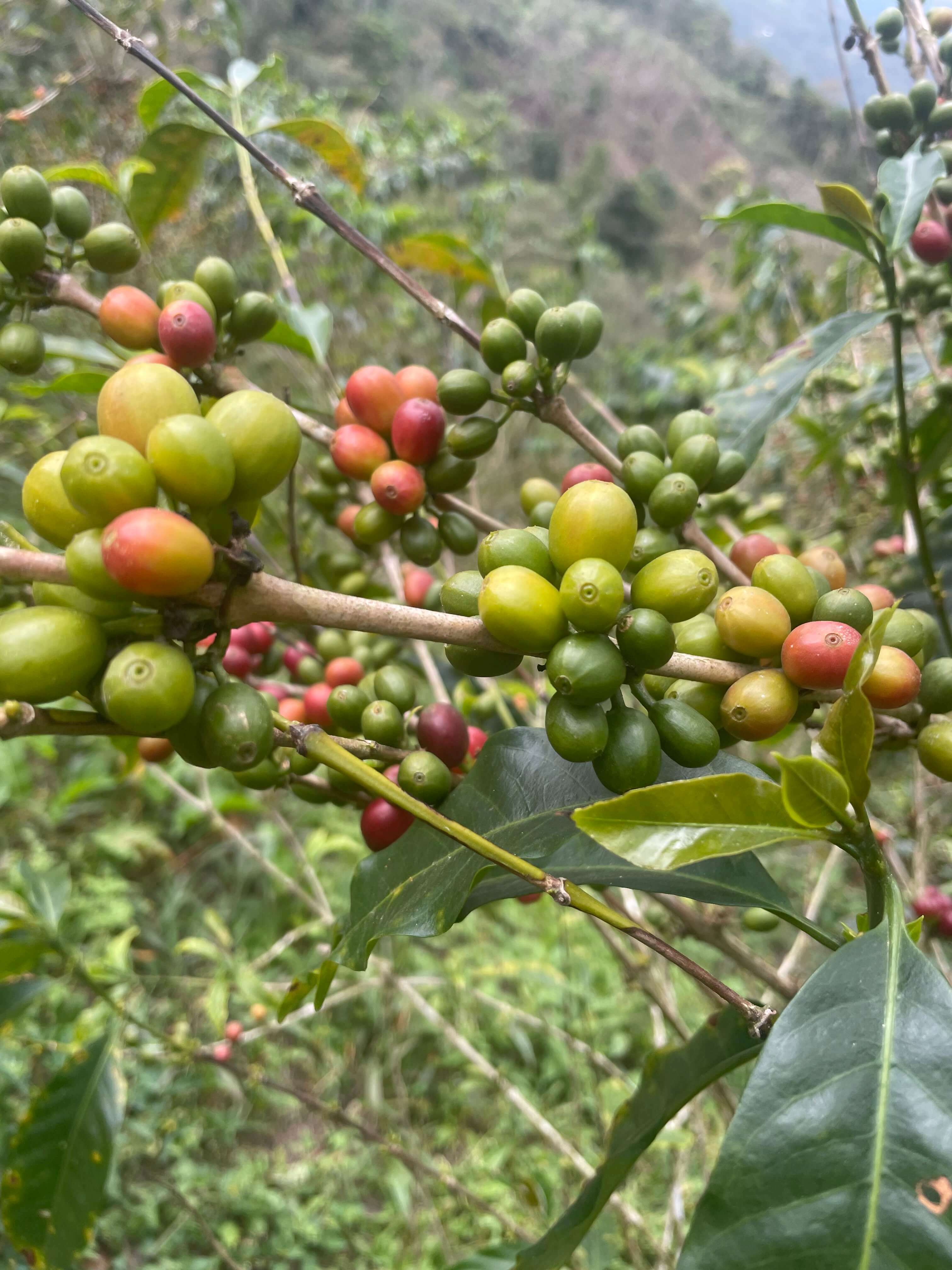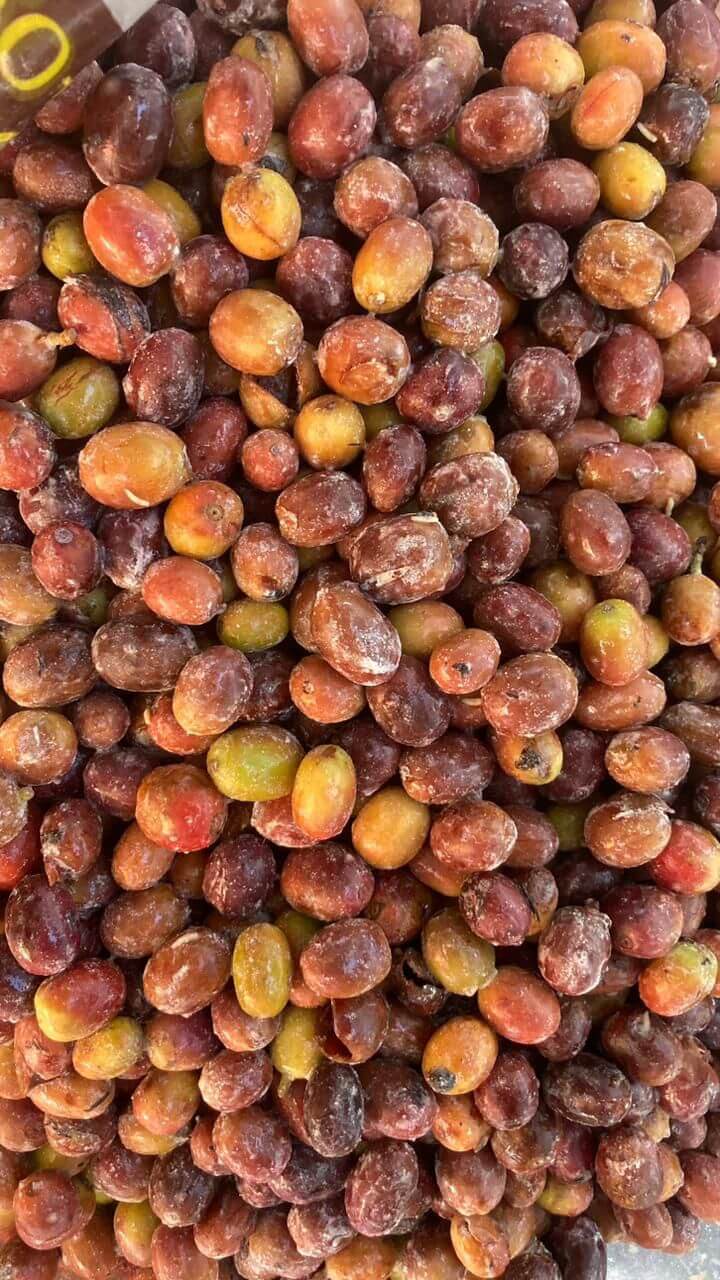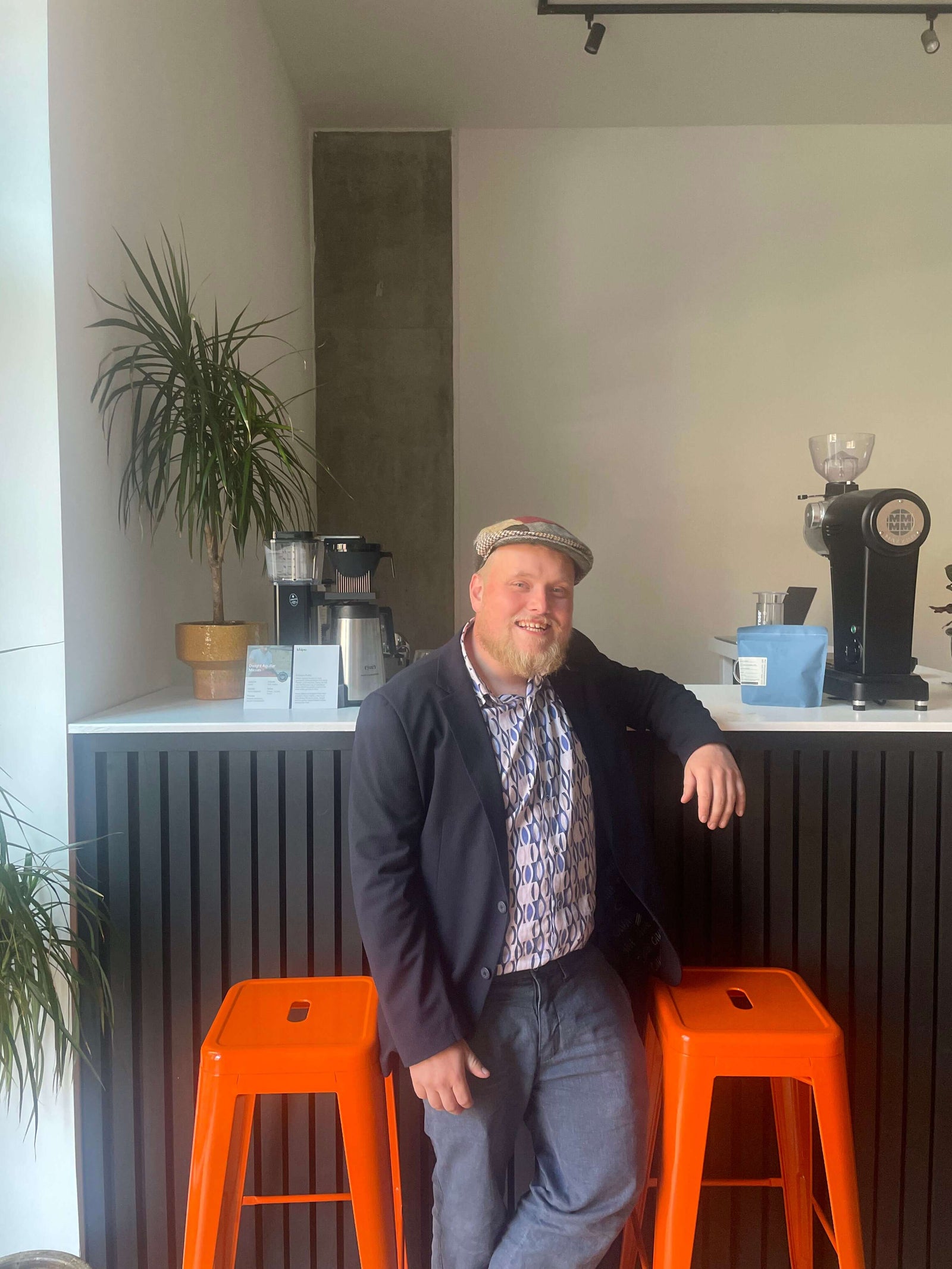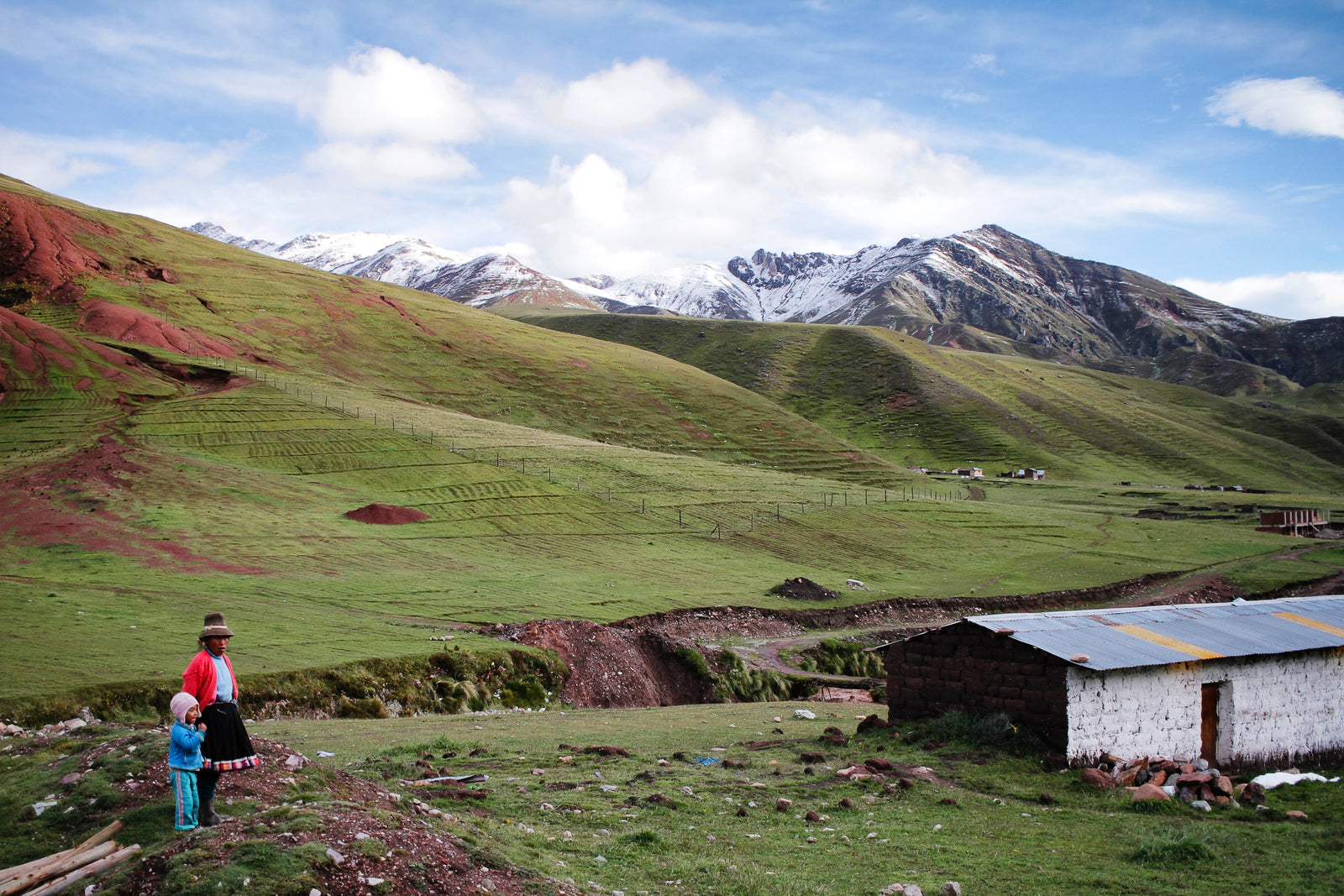Some know biodynamic to be called “organic plus” and some have never heard of it.
After this blog you’ll know what it is and why you’ll likely be seeing it around a bit more.
We’re interested in biodynamic coffee here at Khipu Coffee because we’ve got a good relationship with the only certified biodynamic coffee farm, La Chacra D’Dago in Peru.
In late 2022 we brought over their coffee and it was the first time ever that a Demeter certified Peruvian biodynamic coffee has been available in the UK!
Ok, less about us and more about what it is and how it works for coffee.
What is Biodynamic Coffee?
Biodynamic coffee is coffee that has been farmed using biodynamic farming practices, a type of organic farming that takes into account the holistic health of a farm as a whole system. The interactions between the plants, the animals, the soil, and the climate on the farm are all key factors that biodynamic farmers take into consideration when growing their crops.
This focus on the connection between all that makeup the farm is what is believed to create a balanced and sustainable ecosystem. Biodynamic farming practices include using cover crops, composting, and crop rotation as well as using specific preparations made from manure, herbs, and minerals to help improve the health of the soil.
How is biodynamic different from organic?
With a biodynamic farm it’s not possible to just grow one type of crop, where organic farms that grow only one crop are reliant on certain fertilisers to grow and also start to starve the soil of certain nutrients in the long run. Biodynamic differs in the sense that all other aspects of the farm need to work as one for any of it to work.
Is biodynamic just for coffee?
Biodynamic farming has been popular for decades with wine. The natural wine trend you may have seen comes from a lot of biodynamic farms. It’s starting to be experimented with coffee across the world and there are only a handful of biodynamic coffee farms at the moment. It’s not an easy practice and requires a complete shift in the way conventional farms yield their crops and challenges the dominant practice of farming and the methodologies that go with it.
Where did biodynamic come from?
We have Rudolf Steiner, an 19th century Austrian educator, philosopher, and scientist to thank for the practice of biodynamics. He believed that a healthy farm ecosystem could be created by paying close attention to the interactions between the plants, the animals, the soil, and the climate.
Are there health benefits of biodynamic coffee?
There are many potential health benefits of biodynamic coffee. Some research suggests that biodynamic coffee may have anti-inflammatory and antioxidant properties. Additionally, biodynamic coffee may help improve blood circulation and boost energy levels. This is not too different from the overall health benefits of coffee, namely the polyphenols (what makes coffee dark) being the powerhouse compound that can help pump the blood around the body.

Back to Basics
The premise of biodynamic farming is that you use all parts of the farm to grow your fruit and vegetables, use only natural and organic fertilisers and make sure that the harvesting and cultivating is in sync with cosmological cycles of the year.What are the cosmological coffee cycles?
Cosmological coffee farming cycles are the natural cycles that affect coffee production. There are three main cosmological coffee farming cycles: the water cycle, the nitrogen cycle, and the carbon cycle.
The water, nitrogen and carbon cycles are important because it helps to regulate the climate of the farm and helps to improve the health of the soil. Composting and crop rotation are used amongst other techniques to keep the water, nitrogen and carbon cycles in flow and balanced throughout the year.
What else is similar to biodynamic coffee farming?
Biodynamic has become part of a larger movement in farming that is growing in popularity called a few names such as regenerative farming, restoration farming and agroecology farming.
The key connection between all of these methods is that they follow the design principles of permaculture which aims to create sustainable, self-sufficient ecosystems. It is rooted in the idea that plants, animals, and humans should work together to create a harmonious system that benefits all members of the ecosystem.
Permaculture design principles include using natural patterns to guide design, creating multiple uses for each element in the system, and using renewable resources.
A key takeaway from the permaculture design principles and within biodynamic farming is that soil health is paramount.
How can it improve soil health?
Agroforestry is a type of agriculture that combines trees and shrubs with crops and livestock. The trees and shrubs are used to provide shade and shelter for the crops and livestock, and they also provide a source of food and income for the farmer.
Agroforestry Studies have shown to improve the soil quality, to provide a source of fuel and timber, and to reduce the impact of pests and diseases.
This is a common technique used for biodynamic farms and especially helpful for coffee farmers. The ability to generate extra sources of income while also providing better fertility to the soil that will increase coffee yield, quality and taste is a win-win-win.
Have you heard about shade grown coffee?
Shade grown coffee is coffee that is grown under a canopy of trees. The trees provide shade for the coffee plants, which helps to protect them from the sun and from pests and diseases. Shade grown coffee is a technique that is rapidly being practiced in Peru because of the hot and humid tropical climates. This technique can also be beneficial for biodynamic farms because the farm animals such as chickens and pigs can have shelter in the daytime heat.
The challenge of going from growing one crop to a whole ecosystem
Transitioning from a monoculture coffee farm to a biodynamic farm is not easy.
First of all the question of cost is going to be huge because you will not be reliant on a certain fertiliser or pesticide but you’ll be reliant on everything from your farm. This takes a lot of knowledge and expertise to be able to see this through successfully.
A thorough assessment of your current situation, financial and on the farm will have to be done as well as analysing the current health of the soil. The soil may need time to repair and certain nutrients to be absorbed before it can start to grow a multiple of crops and trees.

What are the key differences that coffee farmers have to consider
The mindset of how a biodynamic farming system works and the philosophy it comes with is first and foremost. An example where this is so apparent is when dealing with weeds.
On a conventional farm, synthetic herbicides are used to kill weeds, whereas in a biodynamic farm you embrace weeds so that you can create your own fertiliser. Embracing weeds can be done by allowing them to flower and strategically attracting specific weeds which will deter certain pests in one way or another.
On a conventional farm, synthetic fertilisers will derive from many sources but not organic manure. The biodynamic farming approach champions the use of animals for a number of reasons and one of those is to produce organic manure for the nitrogen used in their fertilisers.
It doesn’t stop there though, when you control what the animals on your farm eat, the better quality you feed the animals, the better quality the manure, the better quality fertiliser to grow the coffee.
Biodynamic, bioavailabilty and benefits
One of the main benefits of this type of approach outside of higher quality produce and higher bioavailability of nutrients is that the farms can also find other revenue streams for the complimentary fruits and vegetables that are grown to support the initial crop of coffee.
Many fruits and vegetables as well as eggs and milk can be for the family farm consumption as well as sharing with communities and if need be to sell extra locally. This approach is more holistic in nature and benefits more people in more ways. The opposite of this approach would be a farm that only grows coffee.
The farms that are more traditional would yield more coffee but dependant on external fertilisers, compromising coffee quality, nutrient density, and also increase the carbon footprint because of it having to either import or be sourced outside of the farm.

Keep a lookout for when we have the biodynamic coffee from Chacra D'Dago available. We look forward to sharing it with you all.
Image Credits
The images and videos in this blog were taken by
Juan Carlos Portales when he visited
Chacra D'Dago in May 2021. We commissioned Juanca to visit
Cesar,
Hector &
Marcia at their biodynamic farm and learn more about what they do. You can find their interviews on our
Instagram.






